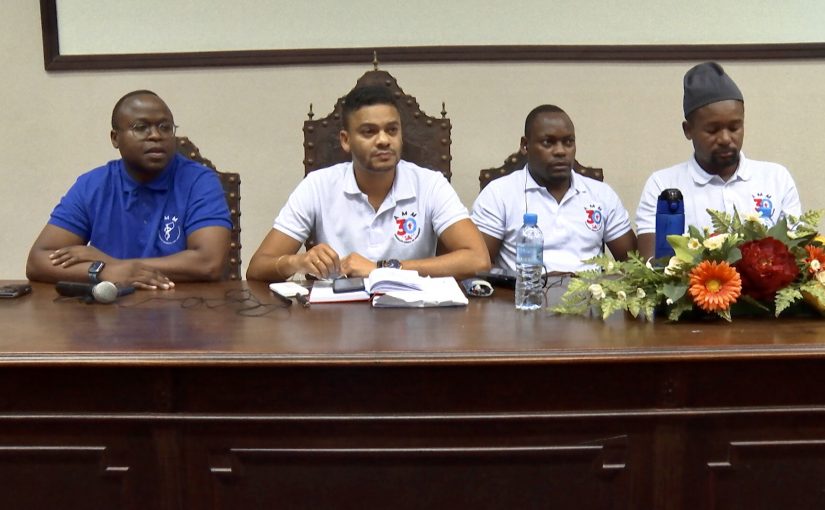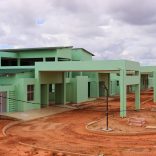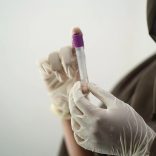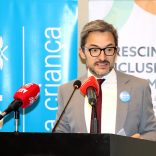Mozambique: Nampula awaits delivery of new hospital as HCN exhausts capacity
Mozambique: Doctors suspend strike and resume work today

Photo: O País
The Medical Association of Mozambique announced yesterday that the doctors’ strike will be suspended for a month.
Eighteen days after the start of the national strike, the doctors’ general assembly met in Maputo on Thursday. After more than four hours of debate, the press was called and the Mozambican Medical Association (AMM) announced that the more than 2,000 doctors who had stopped activities would return to their jobs as of this Friday.
“We are temporarily suspending the strike, and our patients can return to the health units,” AMM president Milton Tatia said, explaining that the decision comes in response to the arrival of the festive season, which traditionally brings an increase in the number of patients seeking health care as a result of road accidents, physical attacks and illness, for example.
“It must be borne in mind that this is the first time in three years that the Mozambican people will be able to spend the festive season without the restrictions imposed by Covid-19,” Tatia explained. “The medical profession has therefore decided to give users a grace period, temporarily suspending the third national strike of doctors to allow them to spend the holidays in the best possible way, benefiting from our care.”
Tatia said that the decision to suspend the strike also responds to appeals made last Wednesday by President of the Republic Filipe Nyusi during his end-of -year speech. “To my medical brothers,” President Nyusi said, “my advice is, to go back to your jobs. We are committed to the health sector for all and we will continue to strengthen the health system, while increasing the flow of specialised training.”
The AMM president said: “We received an appeal from the President of the Republic and an expression of openness to a frank dialogue aimed at finding solutions in the shortest possible time, in order to comply with laws such as the Statute of the Doctor and the Law of the Implementation of the Single Salary Table (TSU).”
The suspension of the strike will last for one month, during which time the AMM will decide on subsequent steps.
However, the AMM said it remains dissatisfied, as there has still been no progress in negotiations with the government in response to concerns arising from the implementation of the TSU and others, which have persisted since 2013.
“Most of the questions raised by us are already in the public domain,” AMM vice-president Paulo Samo Gudo clarified. “They are related to issues such as the framing of the medical class in the Single Salary Table (TSU); working conditions in some health units in the country; and several legislative issues which precede the TSU, as is the case of overtime and seniority, pending since the Statute of the Doctor was approved in 2013.”
The third national doctors’ strike started on the 5th of December. It was called for a period of 21 days extendable. The strike was initially scheduled for the 7th of November, but was postponed pending negotiations with the government.
In health units, elective (non-urgent) activities across the country were suspended, as were external consultations, surgeries, auxiliary examinations and diagnostic medical procedures, autopsies, public health activities, teaching and tutoring activities in all public sector training institutions.
With the partial suspension of labour, some hospitals and health centres resorted to military doctors and medical students to replace the striking professionals.
Even so, there was an overload of work, and patients in some health units complained of overcrowding and delays.
In response to the situation, Minister of Health Armindo Tiago announced that the “absent” doctors, in addition to having the absences registered, would have time missed deducted from their salaries, but AMM president Milton Tatia said that “there are guarantees that absences will be discarded and there will be no discounts, given that considering striking workers as absentees is illegal”.
Without advancing dates for the possible resumption of the strike, the AMM says it is open to dialogue and hopes to see all concerns resolved during the suspension period.
Conditions in health units need to be improved
Speaking on the sidelines of the doctors’ meeting yesterday, AMM vice-president Samo Gudo said that, despite the improvement in working conditions for professionals, the sector still lacks some essential materials.
“There are some issues In the health units which worry the doctors, with regard to material and equipment,” Gudo said. “We believe that there must be a greater effort by the government to provide them, for the benefit of the population and to guarantee protection to the doctors themselves, who risk their lives to ensure the provision of health care.”
Samo Gudo said that the concerns were long-standing and well known to the Ministry of Health, which assured that solutions to them must be phased.
.By Nélia Mboane












Leave a Reply
Be the First to Comment!
You must be logged in to post a comment.
You must be logged in to post a comment.